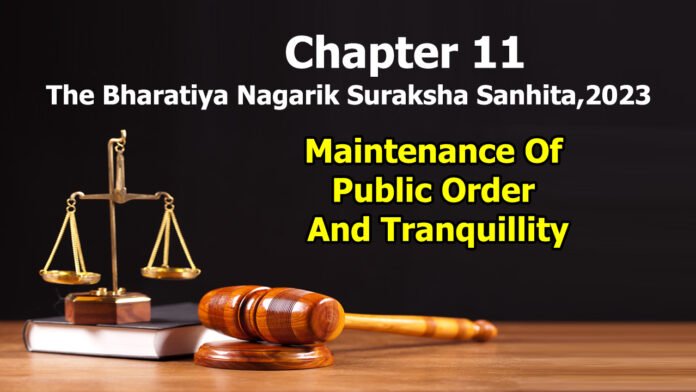A.—Unlawful assemblies
- Dispersal of assembly by use of civil force.
- Use of armed forces to disperse assembly.
- Power of certain armed force officers to disperse assembly.
- Protection against prosecution for acts done under sections 148, 149 and 150.
B.—Public nuisances - Conditional order for removal of nuisance.
- Service or notification of order.
- Person to whom order is addressed to obey or show cause.
- Penalty for failure to comply with section 154.
- Procedure where existence of public right is denied.
- Procedure where person against whom order is made under section 152 appears to show-cause.
- Power of Magistrate to direct local investigation and examination of an expert.
- Power of Magistrate to furnish written instructions, etc.
- Procedure on order being made absolute and consequences of disobedience.
- Injunction pending inquiry.
- Magistrate may prohibit repetition or Continuance of public nuisance.
C.—Urgent cases of nuisance or apprehended danger - Power to issue order in urgent cases of nuisance or apprehended danger.
D.—Disputes as to immovable property - Procedure where dispute concerning land or water is likely to cause breach of peace.
- Power to attach subject of dispute and to appoint receiver.
- Dispute concerning right of use of land or water.
- Local inquiry.
- Police to prevent cognizable offences.
- Information of design to commit cognizable offences.
- Arrest to prevent commission of cognizable offences.
- Prevention of injury to public property.
- Persons bound to conform to lawful directions of police


